Found 859 resources.
0
0
0
Homelessness and child welfare system involvement pose substantial challenges for families, but supportive housing can help them stay together and access secure housing.
Topics: Advocacy, Dual-generation, Healthy homes, Homelessness, Housing, Low-income, Stability
 Shared by Molli Caite Hughes
on Nov 15, 2023
Shared by Molli Caite Hughes
on Nov 15, 2023 0
0
0
People experiencing homelessness disproportionately face systemic barriers to employment, which make finding and keeping a job neither simple nor easy.
Topics: Advocacy, Homelessness, Low-income, Stability, Workforce development
 Shared by Molli Caite Hughes
on Nov 15, 2023
Shared by Molli Caite Hughes
on Nov 15, 2023 0
0
0
This webinar includes a discussion about innovations in trauma-informed approaches to housing from expert speakers. We heard from Julianna Stuart-Lomax presenting about the POAH Trauma-Informed Housing Toolkit and their work in this area. Chad Holtzinger, president of Shopworks Architecture and partner of the Denver Housing Authority, discussed PHA trauma-informed practices at their Thrive project.
Topics: Healthy homes, Housing Is Working Group, Mental health
 Shared by Camille Anoll-Hunter
on Nov 15, 2023
Shared by Camille Anoll-Hunter
on Nov 15, 2023 0
0
0
When Sylvia Blanco and her colleagues from the Housing Authority of the City of Austin were presented with an opportunity to collaborate with UnitedHealthcare Community Plan of Texas, it was an easy decision for them. “We didn’t think twice about the opportunity to partner with UHC,” said Sylvia, their Chief Operating Officer. “The partnership has been tremendous in helping to move the needle on health outcomes for our residents.”
Watch this video to learn how UnitedHealthcare Community Plan of Texas is convening with local organizations to implement innovative and timely solutions in...
Topics: Advocacy, Housing, Medicaid / Medicare
 Shared by Molli Caite Hughes
on Nov 14, 2023
Shared by Molli Caite Hughes
on Nov 14, 2023 0
0
0
As the frequency and severity of weather and climate hazards rises, fully understanding and planning for their potential impact on affordable housing is critical.
This report examines the risks that natural hazards pose to federally assisted housing and its residents using Federal Emergency Management Agency's National Risk Index (NRI).
Topics: Environmental Resiliency/Climate Change, Housing
 Shared by Molli Caite Hughes
on Nov 14, 2023
Shared by Molli Caite Hughes
on Nov 14, 2023 0
0
0
Topics: Asthma, Healthy homes, Housing, Housing Is Working Group, Mental health, Mobility
 Shared by Camille Anoll-Hunter
on Sep 13, 2023
Shared by Camille Anoll-Hunter
on Sep 13, 2023 0
0
0
This webinar will describe new research that shows children whose families participated in a program that helped them move from distressed neighborhoods to areas with lower rates of poverty experienced significant improvements in severe asthma episodes. Before moving, for every 100 children, there were approximately 88 severe asthma attacks per year. After moving, there were approximately 40 severe attacks per year, a reduction of more than 50%. The webinar will explore factors that help explain these changes in asthma, including the critical role of neighborhood-related stress, and describes...
Topics: Asthma, Healthy homes, Housing, Mental health, Mobility
 Shared by Camille Anoll-Hunter
on Sep 13, 2023
Shared by Camille Anoll-Hunter
on Sep 13, 2023 0
0
0
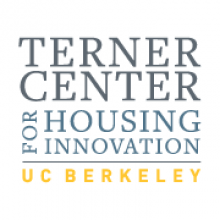
This study aims to quantify the costs of operating PSH—including both the costs of managing the property and providing supportive services—and examine what the implications of insufficient funding are for properties, staff, and residents. Working with a collaborative of seven affordable housing developers in the Bay Area, we analyzed data on operating and supportive services expenses to understand what influences the costs for 26 properties that include PSH units. We then explored how resident outcomes, including participation in resident services, on-time rent payments, and move outs, were...
Topics: Homelessness, Supportive housing
 Shared by Camille Anoll-Hunter
on Aug 11, 2023
Shared by Camille Anoll-Hunter
on Aug 11, 2023 0
0
0

Building and maintaining effective community partnerships is a critical component of health center management and community involvement. Local partners help integrate important stakeholders into organizational processes and empower health centers to better understand and care for the communities they serve. But can health centers design and evaluate their partnerships? In this webinar, we reviewed tools and procedures for designing, evaluating, and strengthening community partnerships with a focus on pragmatic, practical and innovative solutions.
Topics: Health, Housing, Partnerships
 Shared by Camille Anoll-Hunter
on Aug 8, 2023
Shared by Camille Anoll-Hunter
on Aug 8, 2023 0
0
0
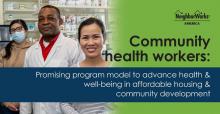
A Community Health Worker Program Development & Toolkit for Affordable Housing and Community Development Organizations
Topics: Health, Healthy homes, Housing
 Shared by Camille Anoll-Hunter
on Aug 3, 2023
Shared by Camille Anoll-Hunter
on Aug 3, 2023 0
0
0
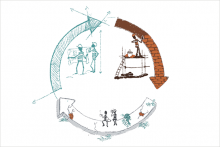
Social service programs are often looking for ways to assess and improve program design and implementation, and are increasingly using rapid learning methods to do so. In rapid learning cycles, programs try a new approach, see how well it works, make modifications to strengthen it, and then try it again. This brief illustrates how 10 fatherhood programs used learning cycles to evaluate one of three promising approaches to engaging men in their services, and the ways they used data in the learning cycle process to make decisions about the design and implementation of the approaches. Even...
Topics: Family engagement, Healthy homes, Research
 Shared by Sandra Ware
on Jun 8, 2023
Shared by Sandra Ware
on Jun 8, 2023 0
0
0

This document summarizes what was learned in SIRF (Strengthening the Implementation of Responsible Fatherhood Programs), which engaged 10 programs in using learning cycles—repeated periods of implementing ideas and reflecting on the results—to build evidence on practices to improve the enrollment, engagement, and retention of fathers in fatherhood programs.
Topics: Family engagement, Research
 Shared by Sandra Ware
on Jun 8, 2023
Shared by Sandra Ware
on Jun 8, 2023 0
0
0
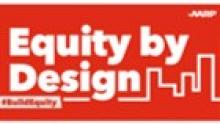
Play is not only beneficial but essential for people of all ages. Today, there is increasing interest in the benefits of not only play itself, but specifically people from younger and older generations playing together. The built environment in our communities plays a critical role in facilitating this intergenerational engagement and play. Approaches such as Intergenerational Contact Zones (ICZs) introduce strategies for promoting social inclusion and belonging, employing novel ways of planning and designing public spaces to create intergenerationally enriched environments that provide...
Topics: Community development, Dual-generation, Exercise, Health, Seniors, Youth
 Shared by Sandra Ware
on Jun 8, 2023
Shared by Sandra Ware
on Jun 8, 2023 0
0
0
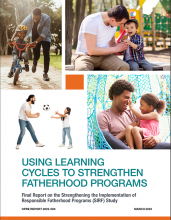
Federally funded Responsible Fatherhood programs work with fathers to promote healthy relationships and marriages, strengthen parenting practices, and help fathers attain economic stability. For programs to improve fathers’ outcomes, they need to be able to recruit fathers, engage them in services, and keep them actively participating in program activities. However, it is challenging for programs to achieve these participation goals. The Strengthening the Implementation of Responsible Fatherhood Programs (SIRF) study was designed to strengthen programs and build evidence on promising...
Topics: Family engagement, Healthy homes, Legislation & Policy, Low-income, Research, Stability
 Shared by Sandra Ware
on Jun 1, 2023
Shared by Sandra Ware
on Jun 1, 2023 0
0
0

Virtual
Topics: Broadband, Data sharing, Low-income
 Shared by Sandra Ware
on Jun 1, 2023
Shared by Sandra Ware
on Jun 1, 2023 0
0
0

The 2022 Federal Broadband Funding Report summarizes and analyzes FY21 data collected from across the federal government. Broadband funding under the Bipartisan Infrastructure Law was appropriated in FY22 and will be included as part of the 2023 Report. Due to the data collection timeline, Federal Broadband Funding Reports currently report on the previous fiscal year rather than the fiscal year they are released in.
To accompany this report, NTIA developed a consolidated data dashboard to assist in the analysis and reporting for FY21 federal broadband investments. The full dashboard with...
Topics: Broadband, Data sharing, Legislation & Policy, Low-income
 Shared by Sandra Ware
on Jun 1, 2023
Shared by Sandra Ware
on Jun 1, 2023 0
0
0

Every May, Ascend recognizes the importance of raising awareness about mental health and the multifaceted ways that it impacts family prosperity and well-being. Even as Mental Health Awareness Month comes to a close, we are committed every day to uplifting the drumbeat across our community that calls for an end to mental health stigma, making strides to ensure that families can access quality services, and advocating for policies that support families' unique mental health needs.
Join us in the national movement to raise awareness about mental health by exploring some of our new...
Topics: Depression, Dual-generation, Education, Legislation & Policy, Mental health, Research
 Shared by Sandra Ware
on Jun 1, 2023
Shared by Sandra Ware
on Jun 1, 2023 0
0
0

The unwinding of the Medicaid continuous coverage requirement represents the largest nationwide coverage transition since the Affordable Care Act, with significant health equity implications. As states restart eligibility redeterminations, millions of Medicaid enrollees will be at risk of losing their coverage with some portion exiting because they are no longer eligible, some losing coverage due to administrative challenges despite continued eligibility, and some transitioning to another source of coverage. Given the intense focus on coverage transitions during the unwinding, some states...
Topics: Affordable Care Act, Data sharing, Medicaid / Medicare
 Shared by Sandra Ware
on May 25, 2023
Shared by Sandra Ware
on May 25, 2023 0
0
0
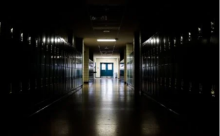
ASTHO comes to our health agencies and partners saddened by our country's recent mass shooting. We mourn the losses of life from firearm violence as our families, schools, and communities continue to be impacted. ASTHO supports you now more than ever. The epidemic of firearm-related injury and death in the United States has become a critical public health and safety concern that affects everyone.
Topics: Community development, Criminal justice, Health, Mental health, Research
 Shared by Sandra Ware
on May 25, 2023
Shared by Sandra Ware
on May 25, 2023 0
0
0

During the 2022–2023 school year, there was a significant increase in the number of schools and districts participating in community eligibility, according to FRAC’s latest report, Community Eligibility: The Key to Hunger-Free Schools, School Year 2022–2023.
This report analyzes community eligibility adoption—nationally and for each state and the District of Columbia—in the 2022–2023 school year.
Topics: Education, Food insecurity
 Shared by Camille Anoll-Hunter
on May 24, 2023
Shared by Camille Anoll-Hunter
on May 24, 2023 0
0
0
Partnerships across housing, transportation, aging and disability, and health are essential to ensure housing stability. Transportation is necessary for community living. With transportation assistance, many older adults and people with disabilities can shop for groceries, get to medical appointments, stay connected and engaged, and otherwise access everyday locations and participate in their community.
Partnering to help people connect to transportation options is therefore a critical component of making community living possible.
This webinar:
Highlights effective pathways for...
Topics: Transportation
 Shared by Malcolm Guy
on Apr 26, 2023
Shared by Malcolm Guy
on Apr 26, 2023 0
0
0

Please join us for a time to hear from PHA leaders and industry professionals on key cross-sector topics of interest. This month will focus on strategies for working with your health department including presentations from those in the field and tips from your fellow PHAs already doing the work.
Topics: Health, Housing Is Working Group, Medicaid / Medicare, Partnerships
 Shared by Sandra Ware
on Apr 13, 2023
Shared by Sandra Ware
on Apr 13, 2023 0
0
0
CLPHA and the U.S. Department of Energy hosted a webinar to provide PHAs with an overview of climate resiliency funds now available through the Office of State and Community Energy Programs. Dr. Henry McKoy joined the webinar and gave details on applying for various environmental resiliency funds now available.
Topics: Environmental Resiliency/Climate Change, Green, Sustainability
 Shared by Malcolm Guy
on Apr 11, 2023
Shared by Malcolm Guy
on Apr 11, 2023 0
0
0

Climate change will affect everyone, so what measures can U.S. communities take now to adapt and thrive? From water-saving landscapes to strategic retreats from hazard-prone areas, experts Colleen Moore and Alexis St. Juliana explore a range of promising responses they’ve identified and explain why historically vulnerable communities must be part of the solutions.
Topics: Community development, Energy, Environmental Resiliency/Climate Change, Green, Housing, Low-income, Research, Sustainability
 Shared by Sandra Ware
on Mar 30, 2023
Shared by Sandra Ware
on Mar 30, 2023 0
0
0
This resource provides guidance to Public Housing Authorities (PHAs), HUD-Assisted communities and other stakeholders wondering how this funding will benefit their communities and what role they can play in ensuring that funds do come to their neighborhoods.
The Department of Commerce’s National Telecommunications and Information Administration (NTIA) published three Notices of Funding Opportunity (NOFO) which will distribute more than $45 billion to states, territories, and tribes for the advancement of broadband infrastructure and digital equity across the country.
The guide also...
Topics: Broadband
 Shared by Malcolm Guy
on Mar 22, 2023
Shared by Malcolm Guy
on Mar 22, 2023 